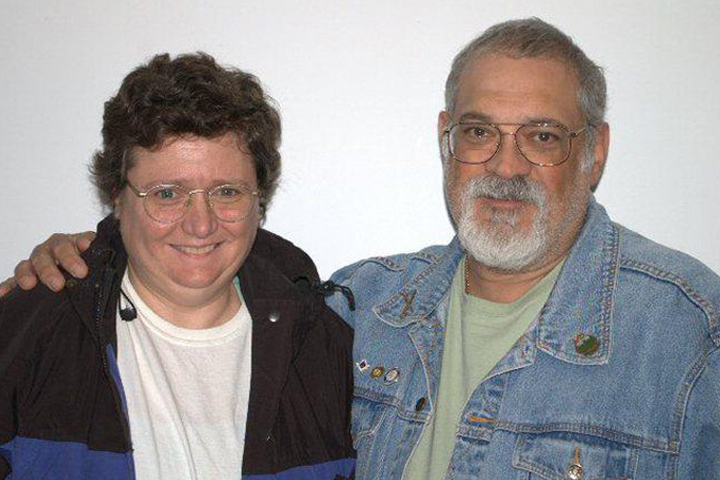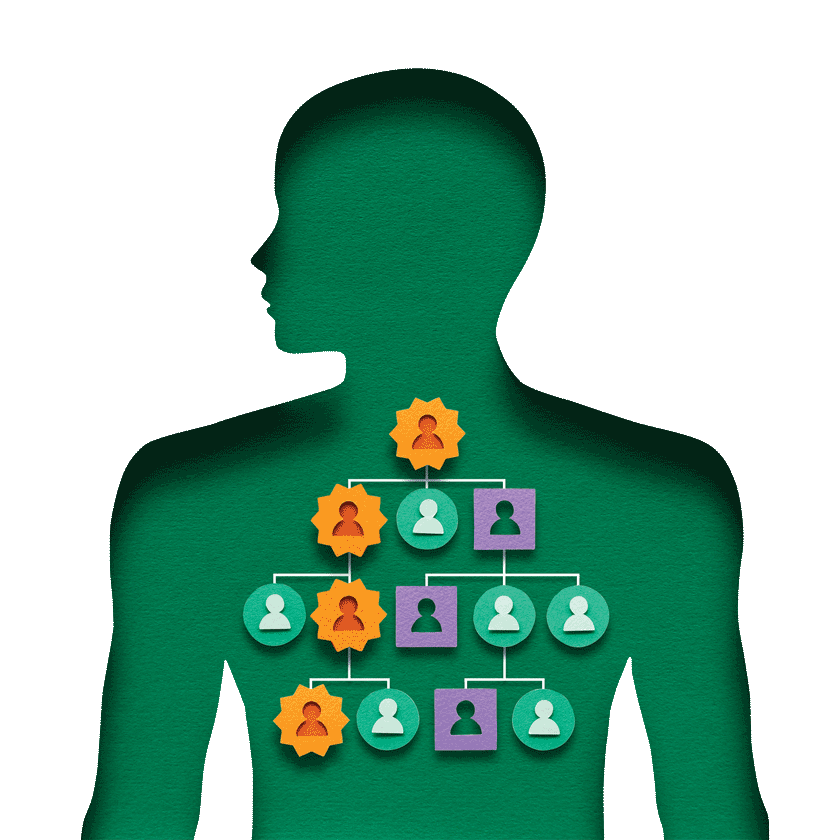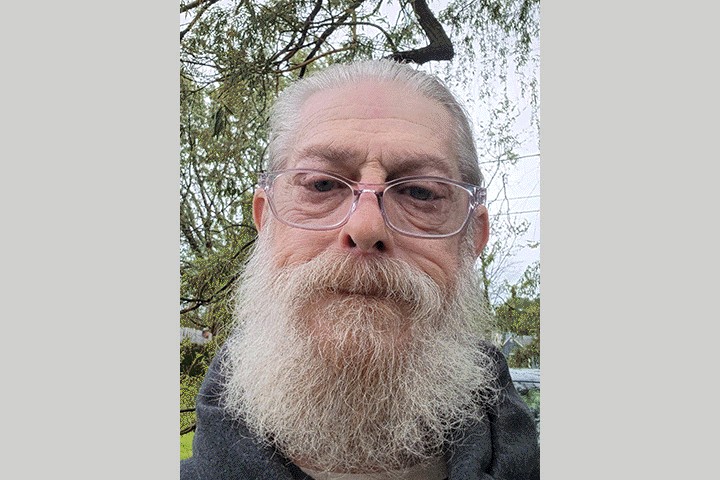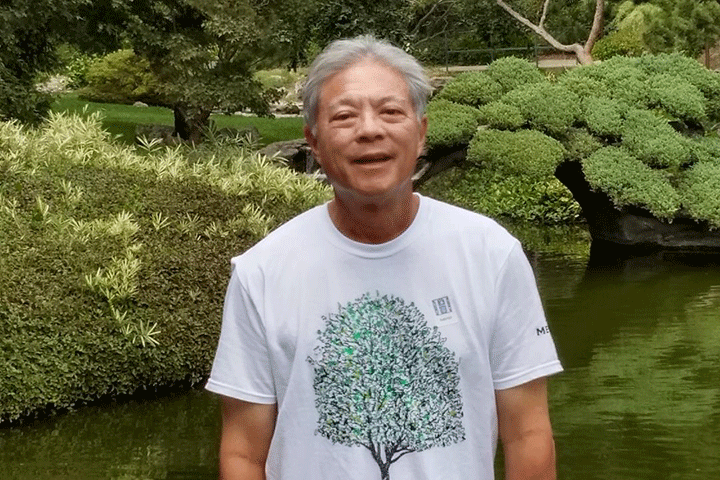What Caused My Pancreatic Cancer?

- Symptoms lead to early-stage pancreatic cancer diagnosis
- Whipple surgery, pylorus preserving
- Chemotherapy
Compared to other folks’ stories, mine is textbook boring—I was diagnosed with a pancreatic adenocarcinoma on 14 May 2015, at 58 1/6 years old.
I first noticed things going awry in mid-March. My main symptoms: painless jaundice, accompanied by pale stools, dark urine, fevers, weight loss, and abdominal aches that occasionally flared to what I called liver cramps.
From 23 March to 10 May I had numerous diagnostic tests: blood tests, x-rays, old-fashioned physical examination, ultrasounds, CT scans, ERCPs for a look-see, stent placement (the doc knew there was something surrounding and constricting the bile duct), and biopsy. The ERCPs took place at the University of Maryland Medical Center (UMMC) in Baltimore, Maryland, 90 miles from my home.
Finally, a Diagnosis
On 14 May, Dr. H. Richard Alexander, Jr. (now at Rutgers Cancer Institute of New Jersey), an oncological surgeon, came into my room, introduced himself to my wife and me. His specialty gave us both pause but we had been half expecting a cancer diagnosis. He said he had agreed to take my case.
The findings and diagnosis were explained. The stage IB tumor was well defined and confined to the tissue of the pancreatic head. No nodes or other tissue was suspected as involved, including blood vessels much larger than capillaries. I qualified for surgery without chemo or radiation ahead of time. Dr. Alexander said any further treatment, like chemo, would be dependent on what they found when they opened me up.
He asked if I had any questions. My wife and I exchanged a look, she shrugged. I replied, “When can you clear a table and cut me?” I then explained how I had lost two maternal relatives to the disease: my grandmother in 1990 (5-month survivor) and an uncle in 2008 (19-day survivor).
We had a formal surgical consult one week later, where he explained the Whipple procedure in great detail. He asked me if I wanted a second opinion. I demurred, told him that if this tumor was as aggressive as my uncle’s, I wanted it out post-haste. The Whipple was scheduled for 12 days later.
My Treatment Protocol
My treatment turned out to be totally conventional. On 2 June, I underwent a pylorus-preserving pancreaticoduodenectomy, aka a modified Whipple. While Dr. Alexander estimated it would take about six hours, my surgery took almost nine hours due to excess adipose tissue, unusual liver topography, and difficulty separating the gallbladder from my liver. I lost the head of my pancreas, most of the duodenum, the gallbladder, a good part of the bile duct, some of the omentum, and 29 lymph nodes.
On 10 June, Dr. Alexander came into my room with his coterie of residents and interns to examine me and give me the pathology report. I surprised him by sitting up without help after he sat down. The pathologist had re-staged the tumor to IIB, mainly due to size. It had broken out of the pancreas but was not invading any other tissue. All margins were negative for disease. Four of the lymph nodes were suspected, but not confirmed, as involved. I was sent home with pain meds, but I hardly needed them.
At my first follow-up, three weeks after the procedure, I was healing well, and the staples were taken out. I gave Dr. Alexander another surprise when I told him I had walked two miles around my neighborhood the day before. He gave me the option of chemo due to the suspected nodes, and I agreed. He arranged an appointment with an oncologist local to me.
I saw Dr. Minal Shah of MedStar Health (California, Maryland) two weeks later and started chemo a week after that. She set a regimen of 18 treatments of gemcitabine to be taken for three weeks via infusion, plus lab work, with a fourth week of labs only (for six cycles). When my blood counts were read on week three, the schedule was changed to two weeks with infusions and one week, labs only. I received Zofran for nausea, followed by the chemotherapy, via regular IV drip. I did well enough so that treatments 17 and 18 were canceled. My side effects were mild flu-like symptoms, with crushing fatigue the day after chemo.
I had the genomic testing done that is now standard for a new diagnosis. I was tested for BRCA1, BRCA2, and a custom panel of 86 other markers. All showed no significance in the development of my cancer. Lynch syndrome was not present.
My Current Status
As it stands now, I healed really well and have never had a Whipple attack. I am able to eat 99.99 percent of what I did before and need no digestive aids. I gained back the 52 pounds I lost over the course of the illness, treatment, and recovery. My A1C and blood pressure are borderline high, so I am trying to lose some of the excess weight again.
I have follow-up lab tests every six months and a CT scan annually. My last test was in May 2020.
Everything came back clear, except there was an unexpected shadow at the top of my cecum. I agreed to my GI doctor’s recommendation of a colonoscopy, which was all clear. I am now on an annual follow-up schedule.
I developed incisional hernias, including a recurrence of an umbilical hernia that was fixed during the Whipple. COVID has bollixed up repair surgery, which is an elective procedure as I am having no difficulty from the hernias.
Thinking About My Background
I certainly checked off the lifestyle/hazards box for pancreatic cancer. I smoked from age 18 to 53, up to three packs a day from age 25 to 45, although I tapered off to about two packs a week at the end. My father and grandfather were also smokers, and they both died of smoking-related illnesses (cancer and COPD). I was a heavy drinker at various times in my life. I have also been moderately overweight for most of my adult life.
There have been four known pancreatic cancer cases in my family, maternal side: my grandmother, an uncle, me, and a male first cousin. The four of us had different lifestyles and environmental hazards. My cousin was a huge shock. He was one of the healthiest and most fit persons I ever knew. He never smoked or drank, did no drugs.
Dr. Alexander, during the surgical consult, told me that in his then 27 years’ experience, he thought that pancreatic cancers causes were: 10 percent genetic, 25 percent lifestyle/environmental hazards, 65 percent random mutation of unknown origin.
My mom, who died on 30 September 2020, had colon cancer, after surviving ovarian cancer in 2005. She succumbed to a metastasis to her brain from the colon cancer, for which she had surgery in August 2019. Genetic testing showed she had Lynch syndrome. My youngest sister was recently treated for breast cancer but my brother and other sister have not had any cancers. They all had the genetic testing done and had results similar to mine.






